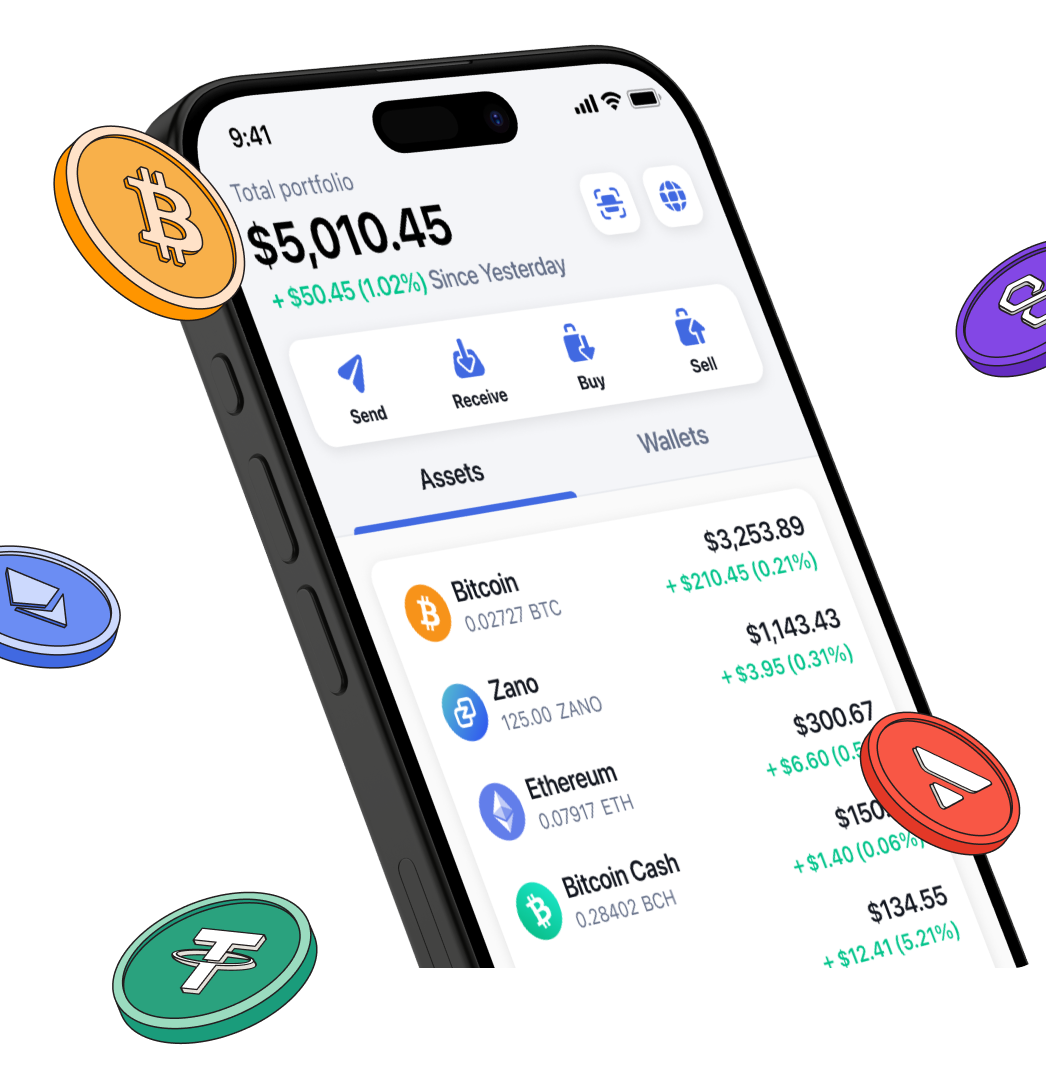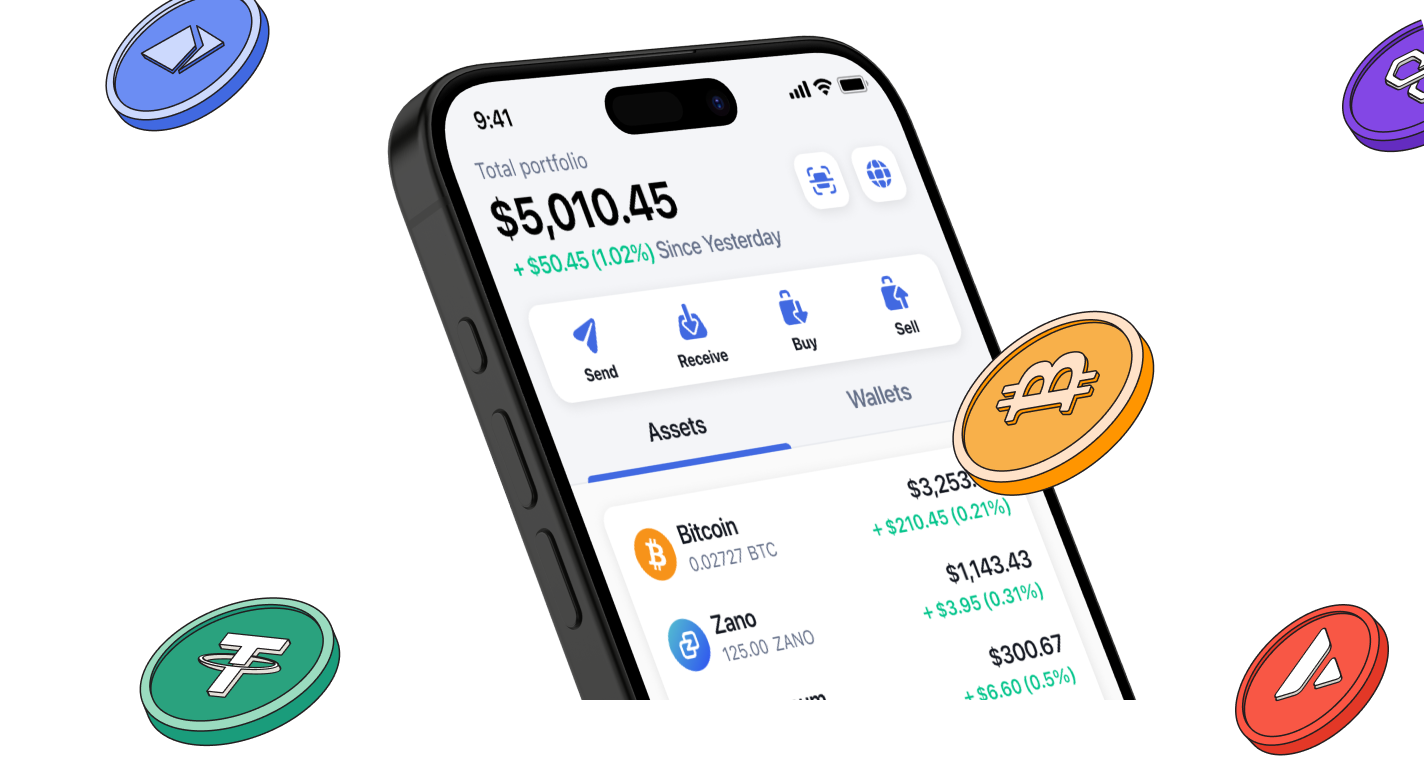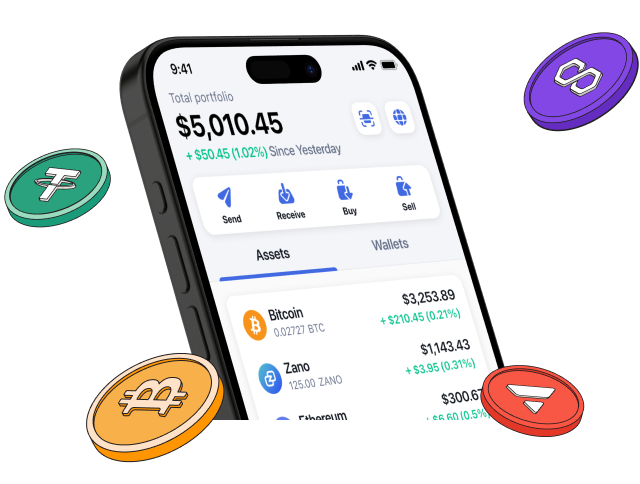How to Report Staking Income

Table of Contents
- Overview
- Understanding Staking
- Tax Authorities and Staking Guidance
- Taxable Events in Staking
- Income vs. Capital Gains
- Reporting Staking Income for Individuals
- Staking for Businesses
- Advanced Staking Scenarios
- Record-Keeping and Documentation
- Software and Tools for Staking Reporting
- Cross-Border Tax Considerations
- Losses, Write-Offs, and Tax Planning
- Common Mistakes and Audit Triggers
- Voluntary Disclosure and Correcting Past Mistakes
- Tax-Advantaged Strategies for Staking Investors
- Accounting and Bookkeeping for Staking
- Regulatory Developments and Future Trends
- Case Studies
- Conclusion
Overview
Cryptocurrency staking has emerged as one of the most significant innovations within the digital asset ecosystem, particularly under the framework of Proof-of-Stake (PoS) and other consensus mechanisms that enable blockchain networks to operate securely and efficiently.
Unlike traditional mining, which relies heavily on energy-intensive proof-of-work systems, staking allows participants to lock up their cryptocurrency holdings to support network operations, validate transactions, and secure blockchain protocols. In return for contributing to the network, stakers earn rewards, typically in the form of additional tokens or interest-like yields. The rise of staking reflects a broader evolution in blockchain technology, where passive participation in decentralized networks is increasingly incentivized, drawing in individual investors, institutional players, and even businesses.
The concept of staking is closely linked with the idea of network participation and governance. In many PoS-based protocols, token holders can stake their assets to gain voting rights on protocol decisions, giving them a direct influence on network upgrades, changes to consensus rules, and the allocation of treasury funds. This governance element has created a dual incentive structure: financial rewards through staking yields and strategic influence over the network’s future.
Over the past few years, this combination of passive income and governance power has attracted a wide range of participants, from long-term HODLers seeking consistent returns to professional investors and funds actively optimizing staking strategies across multiple chains and platforms.
The Rise of Staking in DeFi
Staking has gained particular prominence in the decentralized finance (DeFi) space, where the demand for yield generation has skyrocketed in recent years. Platforms like Ethereum, Cardano, Polkadot, Solana, and Tezos have incorporated PoS or hybrid consensus mechanisms, allowing participants to stake directly or via liquid staking derivatives. Liquid staking, a relatively recent innovation, allows stakers to unlock liquidity from their staked assets by issuing derivative tokens that can be deployed in DeFi applications.
This has created a compounding ecosystem where staking intersects with lending, yield farming, and liquidity provisioning, further amplifying potential rewards but also increasing complexity in tracking and reporting taxable income.
The exponential growth of staking in DeFi can be attributed to several key factors:
-
Attractive Yields: Staking often provides predictable, interest-like returns that surpass the yields of traditional savings accounts or even some fixed-income investments. While the rates vary by protocol, many offer annual percentage yields (APYs) ranging from 4% to over 20%, depending on network incentives, tokenomics, and the level of participation.
-
Lower Energy Costs: Compared to proof-of-work mining, staking is far less resource-intensive, making it accessible to a broader audience without the need for expensive hardware or high electricity bills.
-
Ease of Participation: Many exchanges, wallets, and custodial platforms now offer simplified staking services, enabling users to stake tokens with a few clicks, reducing the technical barriers that previously limited participation.
-
Network Security Incentives: Beyond financial returns, staking contributes directly to the security and reliability of blockchain networks. The alignment of network incentives with participant behavior creates a robust, self-reinforcing ecosystem that encourages long-term holding and network stability.
-
Institutional Adoption: Large-scale institutional investors, such as crypto funds, custodial services, and even banks, have begun participating in staking operations, further legitimizing the practice and contributing to the overall market expansion.
As a result, staking has moved from a niche blockchain activity to a mainstream investment vehicle, attracting both retail and institutional participants worldwide.
Importance of Reporting Staking Income Correctly
With the rapid growth of staking, tax authorities globally have increasingly focused on staking rewards as taxable income. The IRS in the United States, the CRA in Canada, HMRC in the United Kingdom, and other national regulators have clarified that staking rewards are generally considered income at the time they are received.
However, the specifics often vary depending on whether the rewards are received in native tokens, liquid staking derivatives, or secondary rewards such as governance tokens.
Correct reporting of staking income is crucial for several reasons:
-
Regulatory Compliance: Failure to report staking rewards can trigger audits, penalties, and interest charges. Cryptocurrency tax compliance is no longer a peripheral concern; it is actively enforced in many jurisdictions.
-
Avoiding Double Taxation: Staking rewards can generate both ordinary income at the time of receipt and capital gains upon disposal. Accurate reporting ensures that taxpayers are not penalized for unreported income while also properly accounting for future gains or losses.
-
Financial Transparency: For businesses and professional investors, proper reporting maintains accurate accounting records, supports financial audits, and ensures that staking income is integrated into broader financial statements.
-
Strategic Tax Planning: Understanding how staking rewards are taxed allows participants to structure their activities efficiently, optimizing long-term gains, timing disposals, and leveraging tax-loss harvesting where applicable.
Despite these requirements, many participants struggle with reporting staking income due to the unique characteristics of blockchain rewards. Staking often generates multiple income streams across different wallets and protocols, sometimes in volatile tokens whose fair market value fluctuates daily. Compounding, nested staking, and participation in liquid staking pools further complicate income determination. Additionally, decentralized protocols may not provide formal documentation akin to traditional financial institutions, necessitating careful record-keeping and transaction logging by participants themselves.
Differences Between Staking, Yield Farming, and Mining
To fully understand staking taxation, it is essential to distinguish staking from other forms of cryptocurrency reward generation:
-
Staking: In PoS networks, staking involves locking tokens to validate transactions and secure the network. Participants earn rewards proportional to their stake and network participation. Staking income is generally treated as ordinary income at the time of receipt, though additional gains may occur upon later sale or conversion.
-
Yield Farming: Yield farming occurs primarily in DeFi ecosystems where participants provide liquidity to lending, borrowing, or trading protocols in exchange for rewards. While staking may be part of yield farming, the income often comes from multiple sources, including interest, fees, and governance token incentives, complicating taxable events.
-
Mining: Mining involves validating transactions in proof-of-work networks by solving cryptographic puzzles. Miners earn block rewards and transaction fees, which are treated as income when received. Unlike staking, mining requires significant hardware investment and energy consumption.
Each activity carries different tax implications. While staking and mining primarily generate income upon reward receipt, yield farming often involves more complex transactions, including impermanent loss, token swaps, and multiple reward tokens. Understanding these differences is essential to ensure accurate reporting and avoid audit risks.
Global Adoption Trends and Regulatory Focus
The global adoption of staking has accelerated alongside broader cryptocurrency market growth. According to recent reports, over 20% of circulating Ethereum is currently staked on Ethereum 2.0, and PoS chains collectively hold tens of billions of dollars in staked assets.
Regions with progressive regulatory frameworks, such as Singapore and Switzerland, have seen strong institutional adoption of staking, while the United States, Canada, and the European Union are increasingly emphasizing clear tax reporting guidelines.
Regulators face unique challenges when addressing staking:
-
Decentralization: Rewards may be distributed by decentralized protocols without central intermediaries.
-
Multi-token rewards: Users may receive governance tokens, derivatives, or pooled rewards that complicate fair market value determination.
-
Cross-border participation: Stakers often interact with international platforms, raising reporting complexities for foreign income and tax treaties.
-
Automation and compounding: Automated reinvestment of staking rewards increases the number of taxable events and record-keeping requirements.
Regulatory focus is growing, with countries like the United States emphasizing that failure to report staking rewards constitutes taxable income, even if participants retain the tokens without converting them to fiat. The CRA has similarly clarified that staking rewards are considered income, highlighting the importance of accurate valuation at the time of receipt.
Many jurisdictions are still evaluating staking and related DeFi activities, indicating that future guidance may further define reporting obligations.
Given these dynamics, staking participants must adopt meticulous record-keeping practices, leverage software solutions for accurate valuation, and stay informed about evolving tax regulations. This is critical not only for compliance but also for strategic financial planning, ensuring that staking income contributes positively to long-term wealth accumulation without triggering penalties or audit issues.
Understanding Staking
Cryptocurrency staking is a cornerstone of modern blockchain ecosystems, particularly in networks that use proof-of-stake (PoS) or its derivatives as a consensus mechanism. At its core, staking involves the act of locking cryptocurrency tokens for a set period to support network operations, such as validating transactions, securing the blockchain, and participating in governance. Unlike proof-of-work (PoW) systems, where participants expend computational resources to mine blocks, PoS relies on the economic commitment of staked tokens as a form of security, aligning the incentives of network participants with the health and integrity of the blockchain.
The importance of understanding staking cannot be overstated, particularly for those seeking to accurately report staking income for tax purposes. Staking rewards are not merely a passive gain; they represent a complex interplay of network participation, tokenomics, and financial incentives, often influenced by the type of staking protocol, the nature of the reward, and the duration of participation.
Definition of Staking and Proof-of-Stake (PoS) Mechanisms
Proof-of-stake (PoS) is a consensus mechanism that selects validators based on the amount of cryptocurrency they commit to the network. In contrast to proof-of-work systems, which rely on energy-intensive mining operations, PoS enables token holders to “stake” their assets as collateral, thereby gaining the right to validate transactions and produce new blocks.
Key elements of PoS include:
-
Stake-Based Validation: Validators are chosen to create new blocks or confirm transactions based on the size of their stake and other protocol-defined factors, such as randomization or network performance.
-
Economic Security: By locking tokens as a form of collateral, validators are financially incentivized to act honestly. Malicious behavior, such as double-signing or validating fraudulent transactions, can result in slashing penalties, where a portion of the staked tokens is forfeited.
-
Reward Distribution: Validators earn rewards in proportion to their stake and their network activity. These rewards can include newly minted tokens, transaction fees, or governance-related tokens.
PoS has several variations and extensions, including:
-
Delegated Proof-of-Stake (DPoS): Token holders delegate their stake to professional validators who operate the nodes. Delegators earn a share of the rewards while outsourcing network responsibilities. Examples include EOS, TRON, and Tezos.
-
Liquid Staking: Allows participants to stake tokens while receiving derivative tokens representing their stake, which can be further deployed in DeFi applications, increasing liquidity without losing staking rewards.
By understanding the fundamentals of PoS, participants can better evaluate how staking rewards are generated, recognized as income, and subsequently taxed.
Types of Staking Rewards
Staking rewards can come in multiple forms, each with its own tax implications:
-
Native Token Rewards: These are the most common rewards, paid in the blockchain’s native currency. For example, staking ETH on Ethereum 2.0 generates ETH as rewards. These rewards are typically considered taxable income at the time they are received, and any subsequent appreciation or depreciation in token value may result in capital gains or losses upon disposal.
-
Governance Tokens: Some protocols distribute governance tokens as part of staking rewards, which can confer voting rights over network decisions, treasury allocation, or protocol upgrades. While they may carry additional utility beyond monetary value, governance tokens are generally treated as taxable income upon receipt, valued at their fair market value (FMV).
-
Derivative Tokens / Liquid Staking Tokens: These tokens represent staked assets in a liquid form, enabling further participation in DeFi activities, such as lending or yield farming. Examples include stETH (Lido’s Ethereum staking derivative) and rETH. The receipt of derivative tokens is generally treated as income, while any further gains from secondary activities may generate additional taxable events.
Understanding the type of reward is critical, as tax reporting requirements may differ based on token type, network, and the jurisdiction’s interpretation of cryptocurrency income.
Centralized vs. Decentralized Staking
Staking can occur through both centralized platforms, such as exchanges or custodial wallets, and decentralized protocols, with key differences in risk, control, and reporting obligations:
-
Centralized Staking: Exchanges like Coinbase, Binance, and Kraken offer staking services where the platform acts as a custodian. Users delegate tokens to the exchange, which manages the technical staking operations. The exchange then distributes rewards, often after deducting service fees. From a tax perspective:
-
The user may receive documented statements of staking income, simplifying reporting.
-
Rewards are generally taxable as ordinary income when credited.
-
Centralized platforms may provide 1099 forms (US) or equivalent statements for local tax reporting.
-
-
Decentralized Staking: Involves direct participation in blockchain networks or staking pools without intermediaries. Participants maintain control over private keys and interact with smart contract directly. From a tax perspective:
-
Users are responsible for tracking rewards, FMV, and transaction details themselves.
-
There may be multiple events, including rewards, restaking, or derivative token issuance.
-
Accurate record-keeping is essential to meet regulatory obligations, as there is no centralized reporting.
-
The choice between centralized and decentralized staking often balances convenience against control and potential tax complexities. While centralized platforms simplify reporting, decentralized staking offers greater autonomy and exposure to DeFi innovation, albeit with additional reporting responsibilities.
Validators, Delegators, and Staking Pools
The mechanics of staking involve multiple roles, each with different implications for income recognition and accounting:
-
Validators: Validators operate nodes and are directly responsible for securing the network, validating transactions, and producing blocks. They bear operational responsibilities, including uptime, hardware maintenance, and potential penalties for protocol infractions. Staking rewards earned by validators are generally recognized as income at the time of receipt, and validators may also deduct operational expenses related to hardware, electricity, and software for tax purposes if applicable.
-
Delegators: Delegators participate indirectly by assigning their stake to professional validators. They receive a portion of the validator’s rewards, usually after deducting a commission or service fee. From a tax perspective, delegators recognize staking income when rewards are received, and commissions or fees paid to validators may sometimes be treated as deductible expenses depending on jurisdictional rules.
-
Staking Pools: Pools combine resources from multiple participants to increase the likelihood of earning consistent rewards. Participants’ shares are proportional to their contributions. Pools simplify technical participation but require accurate tracking of individual rewards, commissions, and reinvested amounts. Each distribution event may generate a separate taxable occurrence, highlighting the importance of detailed record-keeping.
Understanding these roles is vital for both operational and tax purposes, as income recognition, expense deductions, and reporting responsibilities may differ significantly between validators, delegators, and pool participants.
Summary
Staking represents a sophisticated mechanism for participating in blockchain networks, generating income, and engaging in network governance. Its rise has been fueled by high yields, lower operational complexity than mining, institutional adoption, and the growth of DeFi ecosystems. However, the rewards generated through staking introduce significant tax considerations that must be understood and addressed. Participants must differentiate staking from yield farming and mining, recognize the type of staking reward received, and account for centralized versus decentralized participation. Roles such as validators, delegators, and pool participants introduce additional complexity, affecting how rewards are recorded, reported, and potentially taxed.
Accurate understanding and reporting of staking income are critical not only for regulatory compliance but also for strategic tax planning and financial transparency. Given the rapid evolution of staking protocols and global regulatory attention, maintaining meticulous records, understanding the mechanics of staking, and leveraging professional guidance are essential for both individual and corporate participants.
For expert guidance on reporting staking income accurately and optimizing your tax strategy, Block3 Finance can provide tailored solutions for both individual and business stakers.
Tax Authorities and Staking Guidance
As cryptocurrency staking has gained prominence globally, tax authorities in multiple jurisdictions have begun providing guidance, while many are still developing clear frameworks. Understanding the regulatory landscape is crucial for accurately reporting staking income and minimizing compliance risks.
IRS (United States)
The U.S. Internal Revenue Service (IRS) treats cryptocurrency as property for tax purposes. For staking:
-
Income Recognition: Staking rewards are generally considered ordinary income at the fair market value (FMV) on the date the tokens are received or credited to the taxpayer’s account.
-
Reporting Requirements: Rewards must be included in gross income on Form 1040. Subsequent sales, exchanges, or conversions generate capital gains or losses, reported on Schedule D and Form 8949.
-
DeFi and Custodial Platforms: Centralized exchanges often provide reporting summaries, but the IRS expects taxpayers to track rewards earned through decentralized staking protocols independently.
Despite this, the IRS has not issued formal guidance specific to DeFi staking. Existing guidance is largely inferred from general virtual currency taxation rules, which can create ambiguities for complex staking scenarios, such as compounding or derivative tokens.
CRA (Canada)
The Canada Revenue Agency (CRA) classifies staking rewards as taxable income. Key points include:
-
Income Inclusion: Staking rewards are considered income at the time of receipt, generally at FMV. This income is included in the taxpayer’s T1 personal return or corporate tax return.
-
Capital Gains Consideration: Subsequent disposal of rewards (selling or swapping tokens) is treated as a capital gain or loss.
-
DeFi Protocols: The CRA emphasizes accurate record-keeping for transactions, especially when rewards are compounded, restaked, or moved across multiple wallets or protocols.
Canadian guidance remains less prescriptive compared to traditional assets, but taxpayers are expected to adopt a reasonable valuation methodology and maintain comprehensive documentation.
EU (European Union)
Tax treatment varies by member state:
-
Income vs. Capital Gains: Most EU jurisdictions treat staking rewards as income at the point of receipt. For example, Germany classifies certain staking rewards as taxable income under private income, while France may differentiate depending on the token’s status.
-
DeFi Considerations: The European Union is actively exploring regulatory frameworks for DeFi, with ongoing discussions around harmonized reporting standards for crypto income, including staking rewards.
-
Cross-Border Taxation: EU investors must consider the source of rewards, potential double taxation, and applicable tax treaties when participating in international staking protocols.
United Kingdom
HM Revenue & Customs (HMRC) guidance on staking includes:
-
Income Tax: Staking rewards are generally treated as miscellaneous income. HMRC expects taxpayers to include FMV of tokens at the time of receipt in their tax calculations.
-
Capital Gains Tax (CGT): Selling or exchanging staking rewards triggers CGT events, requiring computation based on acquisition cost (FMV at receipt) and sale price.
-
Professional Stakers: HMRC may consider high-volume stakers or those operating staking services as trading businesses, subjecting them to additional tax obligations.
Singapore
The Inland Revenue Authority of Singapore (IRAS) treats cryptocurrency differently:
-
Non-Taxable for Individuals: Personal staking rewards may not be subject to income tax if considered private investments.
-
Business Income: Companies offering staking services or trading rewards are taxed as income from trade or business.
-
Regulatory Oversight: Singapore continues to monitor DeFi activity, with expectations for professional reporting and compliance as staking adoption grows.
Australia
The Australian Taxation Office (ATO) treats staking rewards as assessable income:
-
Income Inclusion: Rewards are included in taxable income at FMV at the time of receipt.
-
Capital Gains Consideration: Selling or swapping the tokens later triggers capital gains events, calculated based on the initial income inclusion value.
-
Complex Staking Structures: DeFi staking and restaking require diligent record-keeping, particularly for pooled or derivative staking scenarios.
Emerging Guidance for DeFi Staking
Regulators are increasingly focusing on decentralized finance protocols, including staking:
-
Protocol Transparency: Authorities are exploring ways to track staking rewards issued by smart contracts without custodial intermediaries.
-
Derivative Tokens: Guidance is slowly evolving around liquid staking derivatives, where restaked or tokenized representations may create multiple taxable events.
-
Cross-Chain Transactions: DeFi composability allows rewards to flow across chains, increasing complexity for reporting, and regulators are expected to address cross-chain taxation in future guidance.
Challenges for Regulators
Despite global attention, defining clear tax rules for staking remains challenging:
-
Valuation Ambiguity: Determining FMV for tokens that are newly issued, illiquid, or not traded on centralized exchanges is complex.
-
Compounding Rewards: Restaking and auto-compounding may generate multiple taxable events, creating difficulty in tracking for both taxpayers and authorities.
-
Multi-Jurisdictional Activity: DeFi networks often span multiple countries, complicating reporting and compliance under local tax laws.
-
Evolving Protocols: Rapid innovation in PoS networks, derivative staking, and DeFi rewards introduces uncertainty in long-term regulatory approaches.
Taxable Events in Staking
Staking generates multiple potential taxable events, each with specific reporting implications. Understanding when income arises and how to calculate FMV is critical for accurate tax reporting.
Token Issuance as Rewards
-
Recognition Timing: Staking rewards are typically recognized as taxable income at the moment they are credited to a wallet, regardless of whether they are withdrawn.
-
Valuation: FMV should be determined in the local currency at the time of receipt, using reliable market prices from exchanges or reputable aggregators.
-
Frequency of Events: Some protocols distribute rewards continuously or per block, creating a high volume of taxable events that require aggregation for reporting.
Re-Staking Rewards: Compounding and Reinvestment
-
Compounding Impact: When rewards are automatically restaked, they generate additional staking income, each new reward treated as a separate taxable event.
-
Derivative Tokens: Restaking through liquid staking derivatives can create secondary tokens, potentially generating income at issuance and additional taxable events upon conversion or sale.
-
Tax Strategy Implications: Understanding the compounding mechanism allows stakers to plan for cumulative tax obligations and avoid surprises during filing periods.
Withdrawals, Swaps, and Conversions
-
Withdrawals: Moving staked tokens back to a non-staking wallet is generally not a taxable event unless combined with reward distribution.
-
Swaps: Exchanging staking rewards for other tokens triggers capital gains or losses, calculated based on the FMV at the time of receipt as the acquisition cost.
-
Conversions: Converting staked or derivative tokens into fiat or other assets also creates a taxable event, with gains or losses measured from the FMV at the time of initial income recognition.
Determining Fair Market Value (FMV) at Each Event
-
Centralized Exchanges: Use exchange prices on the date of receipt. If multiple exchanges are available, average daily prices may be reasonable.
-
Decentralized Platforms: FMV may be determined using on-chain decentralized exchange (DEX) pricing, oracle data, or reputable crypto aggregators.
-
Documentation: Maintain records of timestamps, token amounts, and FMV calculations for audit purposes.
-
High-Frequency Rewards: Consider batching rewards for reporting purposes if the protocol distributes frequent micro-rewards, but ensure that aggregation methodology is consistent and defensible.
Accurately reporting staking income is complex but critical. Block3 Finance can help you track, calculate, and report staking rewards efficiently, ensuring compliance and minimizing tax exposure.
Income vs. Capital Gains
Cryptocurrency staking introduces multiple types of taxable events, making it crucial to distinguish between ordinary income and capital gains. Proper classification affects both the timing and rate of taxation and is particularly important for individuals, traders, and businesses.
Ordinary Income vs. Capital Gains Distinction
-
Staking Rewards as Ordinary Income: Staking rewards are generally recognized as ordinary income at their fair market value (FMV) at the time they are received or credited. This applies to both native tokens and derivative tokens earned from PoS networks. The rationale is that these rewards are generated through an active process - staking - similar to earning interest or dividends on traditional assets.
-
Capital Gains Events: When staked tokens or the rewards earned are later sold, swapped, or converted into other tokens or fiat, a capital gain or loss event arises. The gain or loss is calculated as the difference between the FMV at receipt (treated as the acquisition cost) and the sale or conversion value.
-
Hybrid Scenarios: Certain staking setups, such as liquid staking derivatives, can create layered taxable events. For example, staking native tokens earns ordinary income, and swapping derivative tokens into other assets triggers capital gains. Correct tracking of each layer is essential.
Short-Term vs. Long-Term Gain Considerations
-
Holding Periods Matter: Many jurisdictions differentiate between short-term and long-term capital gains, often with preferential rates for assets held beyond a threshold (e.g., one year in the U.S.).
-
Calculation Example: If a staking reward token is held for less than a year before being sold, any gain is short-term and taxed at ordinary income rates. If held beyond a year, the gain may qualify for long-term treatment, which often reduces the effective tax rate.
-
Implications for Traders: High-frequency traders or active stakers generating multiple rewards per day must monitor holding periods carefully, as frequent trading may eliminate eligibility for long-term capital gains.
Differences for Individuals, Traders, and Businesses
-
Individuals: Generally report staking rewards as ordinary income at receipt and track subsequent capital gains on sales. Individual investors must maintain detailed records of token receipts, FMV at receipt, and transaction history.
-
Traders: Traders actively buying and selling staking rewards may be classified as engaged in a trading business by tax authorities. This classification can result in all staking income being treated as ordinary business income rather than capital gains.
-
Businesses: Entities earning staking rewards as part of operations must report these rewards as business income. This allows for the deduction of relevant expenses (validator fees, gas fees, software, hardware) and may affect tax rates, depreciation schedules, and bookkeeping procedures.
Case Studies Illustrating Common Scenarios
-
Scenario 1 – Individual Investor: Alice stakes 100 ETH on a PoS network. Each month, she receives 2 ETH as staking rewards. She records the FMV of 2 ETH at receipt as ordinary income. Six months later, she sells 5 ETH; the gain or loss is calculated based on the FMV at the time of receipt as the acquisition cost.
-
Scenario 2 – High-Frequency Trader: Bob participates in daily staking with multiple pools and converts rewards to stablecoins within hours. The tax authority may treat all rewards and gains as short-term ordinary income, resulting in higher effective tax rates.
-
Scenario 3 – Business Entity: A small crypto exchange stakes tokens to earn network rewards. The exchange treats all rewards as business income and deducts validator fees, gas, and platform service charges, reducing taxable income while ensuring accurate bookkeeping for audit compliance.
Reporting Staking Income for Individuals
Proper reporting is critical to remain compliant and avoid audits or penalties. Individuals must navigate multiple forms, schedules, and complex staking scenarios.
Forms and Schedules
-
United States:
-
Form 1040: General reporting of income.
-
Schedule 1: Additional income from staking rewards may be reported here if treated as miscellaneous income.
-
Schedule D and Form 8949: Report capital gains or losses upon disposal of staking rewards. Accurate FMV and acquisition date tracking are essential.
-
-
Canada:
-
T1 General: Report staking rewards as income.
-
Schedule 3: Track capital gains or losses from subsequent sales.
-
T1135: Report foreign accounts or exchanges holding staking rewards above reporting thresholds.
-
-
Other Jurisdictions: Forms vary, but most require income recognition at receipt and separate reporting of gains/losses on disposal.
Reporting Multiple Staking Rewards in a Single Tax Year
-
Aggregation: Individuals may receive rewards from multiple networks or pools. Aggregating FMV by month or year can simplify reporting but must retain underlying transaction data.
-
Automation Tools: Use crypto tax software to consolidate multiple staking rewards into annual reports, ensuring consistent valuation and accurate reporting.
Multi-Wallet and Multi-Chain Reporting
-
Tracking Challenges: Many users spread staking across multiple wallets and blockchains. Each wallet may generate independent rewards, complicating FMV calculation and record-keeping.
-
Best Practices:
-
Maintain a master spreadsheet or ledger recording token, amount, timestamp, FMV, and source network.
-
Use blockchain explorers, API integrations, or CSV exports to verify reward amounts.
-
Common Mistakes and Pitfalls
-
Ignoring Small Rewards: Even micro-rewards accumulate and are taxable.
-
Incorrect FMV Calculation: Using outdated or unreliable exchange rates may result in underreporting.
-
Mixing Staking and Yield Farming: Confusing staking rewards with yield farming income can cause reporting errors.
-
Failure to Track Restaked Rewards: Compounded staking creates multiple taxable events; missing them can trigger audits.
Staking for Businesses
Businesses participating in staking face additional reporting and accounting complexities.
Accepting Staking Rewards as Business Income
-
Recognition Timing: Rewards are recognized as income at FMV upon receipt or credit to the business wallet.
-
Revenue Classification: Rewards may be recorded as other income or service-related income depending on business operations.
Deductible Expenses
-
Gas Fees: Costs for blockchain transactions, such as staking deposits or reward claims, are generally deductible.
-
Validator Fees: Payments to validators or staking services reduce taxable income.
-
Platform Fees: Fees charged by exchanges or staking platforms are also deductible.
-
Software and Hardware Costs: Costs for staking management software or dedicated hardware nodes may be treated as business expenses or capitalized, depending on accounting policies.
Accounting and Bookkeeping Considerations
-
Separate Accounts: Maintain dedicated wallets for staking income to simplify reporting and auditing.
-
Accrual vs. Cash Basis: Businesses may choose accrual accounting to recognize rewards when earned or cash accounting when received, depending on tax strategy and regulatory requirements.
-
Internal Controls: Implement reconciliation procedures to match blockchain rewards with accounting records.
Consolidating Staking Income Across Wallets
-
Centralized Ledger: Aggregate all staking income from multiple wallets, pools, and chains into a single reporting framework.
-
Software Integration: Use accounting software integrated with crypto tax solutions for automated data import, FMV calculation, and income categorization.
Staking income reporting can be intricate, especially across multiple wallets, protocols, and jurisdictions. Block3 Finance can help individuals and businesses accurately track, calculate, and report staking rewards, ensuring full compliance and optimized tax planning. Book a consultation today to simplify your staking tax obligations.
Advanced Staking Scenarios
Staking in cryptocurrency is no longer limited to single-chain, single-token models. Advanced strategies—including cross-chain staking, nested staking, derivative tokens, and governance rewards—create multiple taxable events that require careful attention.
Cross-Chain Staking and Multi-Protocol Strategies
-
Definition: Cross-chain staking involves earning rewards from staking assets on multiple blockchains simultaneously or bridging assets across chains to access higher yields. Multi-protocol strategies refer to staking across several platforms to diversify risk and maximize returns.
-
Tax Implications: Each staking event on a separate blockchain represents a unique taxable event. The fair market value (FMV) of rewards must be calculated at the time they are received on each chain. Additionally, bridging tokens may trigger capital gains if the token changes form during the transfer.
-
Practical Example: Alice stakes ETH on Ethereum and simultaneously stakes wrapped ETH (wETH) on a Solana-based protocol. She receives rewards in ETH and wETH. Each reward is taxed individually as ordinary income based on FMV at receipt, and later sales may trigger capital gains.
Nested Staking and Derivative Tokens
-
Nested Staking: Also called “staking on top of staking,” this occurs when staked tokens generate derivative tokens that can themselves be staked for additional rewards.
-
Derivative Tokens: Often represented as staked derivatives (stETH, aETHc), these tokens accrue value and represent an underlying staking claim.
-
Tax Complexity: Each derivative token issuance is a separate taxable event. Subsequent staking of derivative tokens compounds taxable events and requires precise FMV tracking.
Token Migrations, Hard Forks, and Governance Rewards
-
Token Migrations: Projects sometimes migrate staked tokens to new protocols or issue upgraded tokens. Migrated tokens typically trigger recognition at FMV, and any difference between the original token’s FMV and the new token’s FMV may create taxable gain or loss.
-
Hard Forks: If staking occurs on a blockchain that undergoes a hard fork, additional tokens may be issued. These forked tokens are typically considered ordinary income at FMV when they are received.
-
Governance Rewards: Participation in staking-based governance (voting or protocol proposals) may result in additional token rewards. These are generally considered ordinary income and must be reported when credited.
Validators vs. Delegators: Tax Implications
-
Validators: Operators running validator nodes earn rewards directly and may deduct operational expenses such as server costs, electricity, and validator software. Rewards are ordinary business income.
-
Delegators: Users who delegate tokens to validators typically receive a share of rewards. For tax purposes, these are ordinary income at FMV upon receipt, and any fees paid to validators reduce the net taxable amount.
Advanced staking strategies require meticulous record-keeping and tax planning. Block3 Finance specializes in guiding both individual and corporate stakers through multi-chain, derivative, and nested staking scenarios to ensure full compliance. Book a consultation today to optimize your staking strategy.
Record-Keeping and Documentation
Accurate record-keeping is essential for staking compliance. Given the complex nature of multi-chain, multi-protocol staking, individuals and businesses must adopt robust documentation practices.
Best Practices for Staking Transaction Logs
-
Detailed Logs: Track token type, amount, timestamp, network, wallet address, and protocol. Each staking reward should be recorded individually to support income recognition.
-
Transaction Notes: Include references to pool or validator information, staking fees, and reward type to facilitate audit defense.
Wallet Tracking, API Integrations, and CSV Exports
-
Wallet Tracking: Maintain separate wallets for staking rewards to simplify reconciliation.
-
APIs: Use blockchain explorer APIs or staking platform APIs to pull reward histories automatically.
-
CSV Exports: Export transaction histories from exchanges, wallets, and staking platforms to maintain a master ledger. Ensure that every reward event is included.
FMV Determination for Each Reward
-
At Receipt: Record FMV in fiat currency at the time the staking reward is credited.
-
Multiple Sources: For cross-chain rewards, convert token value using reliable market data for each chain.
-
Consistency: Use the same data source (CoinGecko, CoinMarketCap, or exchange rates) consistently to avoid discrepancies.
Handling Chain Reorganizations and Errors
-
Chain Reorgs: Occasionally, blockchain reorganizations may alter transaction records. Track these events to ensure FMV and staking income are reported accurately.
-
Error Handling: If a reward is erroneously credited or reversed, adjust your records immediately and document the adjustment for audit purposes.
Maintaining precise records across multiple staking protocols is challenging but critical for compliance. Block3 Finance can help streamline your record-keeping with automated tracking, FMV calculation, and audit-ready documentation. Schedule a consultation to protect your staking rewards from future tax issues.
Software and Tools for Staking Reporting
Modern staking strategies often require software support to simplify income reporting, reconcile multiple wallets, and track FMV across chains.
Crypto Tax Software
-
Koinly: Excellent for tracking multiple chains and integrating with decentralized wallets. Automatically calculates staking income and capital gains.
-
TokenTax: Supports professional-grade reporting for individuals and businesses, including validator nodes and multi-protocol staking.
-
CoinTracker: Simplifies tracking for retail stakers and integrates with numerous exchanges and wallets.
-
ZenLedger: Designed for both U.S. and international users; provides detailed tax reports for staking, governance rewards, and derivative tokens.
Manual vs. Automated Reporting: Pros and Cons
-
Manual Reporting:
-
Pros: Full control over record entries and calculations; can adjust FMV for unusual events.
-
Cons: Time-consuming, error-prone, difficult to scale with multi-chain staking.
-
-
Automated Reporting:
-
Pros: Scales well across multiple wallets, protocols, and chains; reduces errors; generates IRS or CRA-ready reports.
-
Cons: Requires accurate API integration and occasional manual reconciliation for chain reorganizations or derivative tokens.
-
Integrations with Wallets, Exchanges, and Staking Platforms
-
Ensure that the software supports:
-
Multiple blockchain networks (Ethereum, Solana, Polkadot, etc.)
-
Validator node rewards
-
Delegated staking pools
-
Exchange staking programs
-
-
Integration allows automatic import of transactions, FMV calculation, and generation of annual reports suitable for submission to tax authorities.
Case Studies on Software Efficiency
-
Individual Investor: Using Koinly, Alice imported her ETH, ADA, and SOL staking rewards from five wallets across three chains. The software automatically calculated staking income at FMV, reducing her reporting time from weeks to hours.
-
Business Example: A corporate entity running validator nodes on Ethereum and Solana used TokenTax integrated with QuickBooks. The solution produced detailed monthly reports, categorized expenses, and generated tax-ready filings.
Simplify staking income reporting and reduce audit risk with the right tools. Block3 Finance can help set up, integrate, and optimize your crypto tax software for accurate, compliant staking reporting. Book a consultation to streamline your staking tax workflow today.
Cross-Border Tax Considerations
Staking often involves multi-jurisdictional complexities, especially when rewards are earned on foreign platforms. Investors and businesses must navigate overlapping regulations to avoid double taxation and compliance pitfalls.
Receiving Rewards from Foreign Staking Platforms
-
Nature of Foreign Staking: Many investors participate in staking through foreign exchanges or DeFi protocols that operate outside their home jurisdiction. Examples include staking on Binance (Singapore), Kraken (US), or Ethereum-based DeFi platforms.
-
Tax Implications: Even if a platform is foreign, the staking rewards are generally taxable in the investor’s home country at FMV when received. The reporting obligation does not depend on where the platform is located.
-
Practical Example: A U.S. taxpayer staking SOL on a Singapore-based exchange must report income in USD using FMV at the time of reward receipt. Failure to report may trigger penalties under IRS rules.
FBAR, FATCA, CRA T1135, and Other Reporting Obligations
-
FBAR (U.S.): U.S. taxpayers must report foreign accounts with balances exceeding $10,000 via the FinCEN 114 form. Even crypto wallets may fall under FBAR if held on foreign custodial exchanges.
-
FATCA (U.S.): Foreign accounts exceeding certain thresholds require reporting on Form 8938, including foreign staking accounts.
-
CRA T1135 (Canada): Canadian taxpayers must disclose foreign property exceeding CAD 100,000, which can include foreign staking rewards or wallets.
-
Practical Tip: Maintain a ledger of wallet addresses, balances, and transaction histories for all foreign accounts to ensure accurate reporting.
Double Taxation and Treaty Benefits
-
Double Taxation Risk: Receiving rewards from foreign staking platforms can lead to potential double taxation if both the home and foreign jurisdiction claim tax on the same income.
-
Treaty Relief: Tax treaties between countries often provide relief, allowing a credit for foreign taxes paid. For example, U.S. investors may claim foreign tax credits for foreign withholding on staking rewards.
-
Best Practice: Keep precise records of foreign taxes paid and consult treaty provisions to minimize double taxation.
Multi-Jurisdictional Compliance Strategies
-
Consolidated Tracking: Maintain comprehensive records for all staking rewards, including chain, platform, token type, FMV, and applicable foreign taxes.
-
Professional Guidance: Work with accountants familiar with cross-border crypto regulations to ensure full compliance.
-
Automation Tools: Use tax software that supports multiple jurisdictions and foreign accounts to streamline reporting.
Navigating cross-border staking taxation is complex. Block3 Finance can help ensure compliance across jurisdictions, maximize treaty benefits, and provide peace of mind. Schedule a consultation today.
Losses, Write-Offs, and Tax Planning
Staking income is not always positive. Losses from token depreciation, failed protocols, or compounding errors can be leveraged for tax planning if handled strategically.
Using Losses to Offset Staking Rewards Gains
-
Realized Losses: Selling staked tokens at a lower value than the FMV at reward receipt generates a capital loss.
-
Offset Mechanism: These losses can offset capital gains from staking rewards or other crypto transactions, reducing overall tax liability.
Tax-Loss Harvesting Strategies for Staking Portfolios
-
Definition: Tax-loss harvesting involves strategically selling underperforming tokens to realize losses that can offset taxable gains.
-
Implementation: For stakers with multi-token rewards, identify tokens with depreciated value and consider realizing losses before the fiscal year-end.
-
Caution: Ensure that tokens intended for long-term compounding are not unintentionally sold, which could impact staking rewards and network participation.
Carryforward of Losses to Future Tax Years
-
Mechanism: Unused losses can often be carried forward to offset gains in future years.
-
Practical Benefit: High-volume stakers or those participating in multiple protocols can strategically use loss carryforwards to reduce future tax burdens, particularly during periods of market volatility.
Strategic Planning for High-Volume Staking Operations
-
Scenario Planning: For validators or delegators with multiple nodes and protocols, simulate yearly income and expenses to optimize tax outcomes.
-
Expense Tracking: Deductible expenses - including gas fees, validator software, electricity, and platform fees - can reduce net taxable income.
-
Integrated Approach: Combine income, losses, and deductions to maximize overall tax efficiency while remaining compliant.
Effective tax planning for staking requires careful tracking of gains, losses, and deductions. Block3 Finance can help you strategize, implement tax-loss harvesting, and optimize high-volume staking operations. Book a consultation today.
Common Mistakes and Audit Triggers
Incorrect reporting of staking income is a leading cause of audits and penalties. Understanding common mistakes and red flags can help stakers remain compliant.
Failing to Report Rewards or Incorrectly Valuing Tokens
-
Unreported Rewards: Ignoring small, repeated staking rewards can lead to underreporting. Even minor tokens accumulate into substantial income.
-
FMV Errors: Using inconsistent sources for FMV calculation, or ignoring multi-chain valuations, can result in incorrect income reporting.
-
Best Practice: Record each reward at FMV at the time of receipt using reliable market sources consistently.
Misclassifying Ordinary Income vs. Capital Gains
-
Common Confusion: Staking rewards are generally ordinary income at receipt; selling those tokens later triggers capital gains.
-
Incorrect Classification: Treating rewards as capital gains upfront underestimates income tax liability and may trigger audits.
Audit Red Flags Specific to Staking
-
Large numbers of small, repeated transactions across multiple wallets or chains.
-
Significant discrepancies between declared staking income and known protocol reward rates.
-
Foreign staking accounts with unreported balances or transactions.
Pre-Audit Planning and Professional Guidance
-
Proactive Reviews: Conduct pre-audit checks to reconcile staking records, verify FMV calculations, and ensure all rewards are accurately reported.
-
Professional Oversight: Engage accountants or tax professionals specializing in crypto to review records, prepare reports, and defend positions during audits.
Avoid costly mistakes and audit risks with professional staking tax guidance. Block3 Finance provides expert oversight, record review, and compliance strategies to keep your staking income fully compliant. Book a consultation now.
Voluntary Disclosure and Correcting Past Mistakes
Many staking participants, particularly those new to crypto taxation, may have inadvertently failed to report staking rewards in prior tax years. Tax authorities provide mechanisms to correct these errors while minimizing penalties.
IRS and CRA Voluntary Disclosure Programs for Unreported Staking Income
-
IRS Voluntary Disclosure Program (VDP):
-
Designed to allow taxpayers to disclose previously unreported income, including staking rewards, before the IRS initiates an audit.
-
Participants can potentially avoid civil penalties if they come forward voluntarily.
-
Includes comprehensive reporting requirements: submit corrected tax returns, provide detailed transaction histories, and calculate tax liabilities.
-
-
CRA Voluntary Disclosures Program (VDP):
-
Similar program for Canadian taxpayers, allowing amendments for unreported income, including staking rewards and other crypto earnings.
-
Penalty relief is possible if the disclosure is voluntary, complete, and done before CRA contacts the taxpayer.
-
Practical Tip: Maintain accurate records of staking history, FMV at the time of receipt, and any associated fees or expenses before submitting a voluntary disclosure.
Amending Returns for Past Staking Activity
-
Process:
-
Identify all unreported staking transactions for each relevant year.
-
Determine the FMV of rewards at receipt and calculate associated income tax and potential capital gains tax if tokens were later sold.
-
Amend the original tax returns using the official forms:
-
U.S.: Form 1040-X (amended return), along with updated Schedule D if applicable.
-
Canada: T1 Adjustment Request, along with Schedule 3 and T1135 if foreign accounts are involved.
-
-
-
Documentation: Keep comprehensive transaction logs, including blockchain confirmations, staking rewards, and any platform communications.
Avoiding Penalties and Interest for Prior Mistakes
-
Interest vs. Penalties: Late or unreported staking income may accrue interest on unpaid taxes. Penalties can be substantial, particularly for willful noncompliance.
-
Voluntary Disclosure Benefits: Timely and complete disclosure can significantly reduce or eliminate penalties.
-
Professional Guidance: Consulting a tax professional experienced in crypto taxation ensures correct calculations and strengthens your case for penalty relief.
Missed reporting staking income in prior years? Block3 Finance can guide you through voluntary disclosure programs with the IRS and CRA, helping you correct past mistakes while minimizing penalties. Book a consultation today.
Tax-Advantaged Strategies for Staking Investors
Strategic planning allows staking participants to optimize tax efficiency while complying with regulations.
Long-Term Holding and Capital Gains Planning
-
Ordinary Income vs. Capital Gains: Staking rewards are generally taxed as ordinary income at the time of receipt. Any subsequent appreciation after receipt is subject to capital gains taxation.
-
Long-Term Planning: Holding tokens long-term post-receipt may allow investors to leverage long-term capital gains rates in jurisdictions where applicable.
-
Practical Example: A U.S. investor receives ETH as a staking reward. If held over one year, any future gains when selling the ETH may be eligible for long-term capital gains treatment, reducing tax liability.
Structuring Staking Through Business Entities
-
Business Entities: Investors or traders can stake through LLCs, corporations, or partnerships to benefit from favorable business tax treatment.
-
Benefits:
-
Deduction of staking-related expenses (validator hardware, gas fees, platform fees, software subscriptions).
-
Potential to defer income or structure distributions efficiently.
-
-
Compliance: Entities must maintain meticulous records and report income properly to avoid scrutiny.
Optimizing Reward Distribution for Tax Efficiency
-
Compounding Considerations: Re-staking rewards compounds the income and can increase taxable income. Planning when and how often to claim rewards can help manage annual tax exposure.
-
Multi-Token Strategies: Prioritize claiming rewards in tokens with favorable FMV growth patterns or tax treatment.
Planning for High-Volume, Multi-Protocol Staking
-
Multi-Protocol Management: Investors participating in multiple networks must track each staking activity individually.
-
Tax Simulation: Use software to project annual income, optimize claiming schedules, and simulate tax impact across jurisdictions.
High-volume staking can generate significant tax liabilities if unmanaged. Block3 Finance helps investors structure staking efficiently, optimize reward distributions, and minimize overall tax exposure. Schedule a free consultation today.
Accounting and Bookkeeping for Staking
Accurate accounting and bookkeeping are critical for individuals and businesses participating in staking.
Recording Staking Deposits and Rewards
-
Deposits: Record the initial staked tokens at cost or FMV at the time of acquisition.
-
Rewards: Each reward issuance is generally taxable as ordinary income. Record the date, token type, amount, and FMV at receipt.
-
Multi-Wallet Tracking: Use wallets and exchange integrations to consolidate reward data for accurate reporting.
Expense Categorization: Gas, Platform Fees, Software
-
Deductible Expenses:
-
Gas and transaction fees
-
Validator or staking pool fees
-
Software subscriptions for staking or accounting tools
-
Hardware costs (if applicable for personal nodes)
-
-
Best Practice: Maintain receipts, invoices, and blockchain confirmations to substantiate claims.
Revenue Recognition vs. Capital Gains Recognition
-
Income Recognition: Staking rewards are generally recognized as ordinary income when received.
-
Capital Gains Recognition: Selling staked tokens triggers capital gains or losses based on FMV at sale minus FMV at reward receipt.
-
Reporting Implications: Properly separating income vs. capital gains ensures accurate reporting and prevents audit issues.
Preparing Financial Statements for Individuals and Businesses
-
Individuals: Maintain clear ledgers showing staking income, FMV, and any deductions. This simplifies personal tax filing and reduces risk of errors.
-
Businesses: Incorporate staking income and expenses into profit & loss statements. Track net income after staking-related expenses, and reconcile with blockchain and exchange records.
Accurate bookkeeping is essential for staking compliance and tax efficiency. Block3 Finance can set up detailed accounting systems, track staking income, and prepare financial statements for individuals and businesses. Book your consultation now.
Regulatory Developments and Future Trends
Staking has rapidly evolved from a niche cryptocurrency activity to a mainstream DeFi and PoS network function. As adoption grows, tax authorities worldwide are increasingly paying attention to staking rewards and the associated tax implications. Understanding current and anticipated regulatory developments is critical for investors, businesses, and traders to remain compliant while optimizing tax efficiency.
Expected Updates in Global Staking Tax Rules
-
United States (IRS):
-
Current IRS guidance treats staking rewards as ordinary income at the time of receipt, with subsequent sales subject to capital gains tax.
-
Emerging guidance may clarify the treatment of complex staking scenarios, including derivative tokens, validator rewards, and cross-chain staking.
-
Future regulatory updates could provide explicit FMV determination rules and guidance for compounding or automatically reinvested staking rewards.
-
-
Canada (CRA):
-
CRA views staking rewards as income at the time they are received. The lack of formal guidance around derivative tokens, pooled staking, and automated reinvestment remains a challenge.
-
Legislative updates may define clearer reporting rules for multi-wallet, multi-chain operations, and cross-border staking rewards.
-
-
European Union:
-
Tax treatment varies across member states, but many treat staking rewards as taxable income with subsequent capital gains on disposal.
-
The EU is exploring harmonized reporting standards for crypto assets, including staking, to simplify cross-border compliance.
-
-
United Kingdom:
-
HMRC generally treats staking rewards as income when received. Gains realized upon disposal of staked tokens are subject to capital gains tax.
-
HMRC is expected to expand guidance on validator operations and derivative staking.
-
-
Singapore and Australia:
-
Singapore does not currently tax capital gains, but staking rewards may be taxed if earned as part of a trade or business.
-
Australia treats staking rewards as income at receipt, with capital gains tax applicable when tokens are later sold.
-
Practical Tip: Keeping up-to-date with these jurisdictions is crucial, particularly for global staking participants or businesses operating in multiple regions.
How PoS Protocols, LP Staking, and Derivative Staking May Impact Taxation
-
PoS Protocols: Rewards from native token staking are typically treated as ordinary income. The method of reward issuance (direct from protocol vs. through a pool) can affect record-keeping and reporting.
-
Liquidity Pool (LP) Staking: Rewards earned from LP token staking combine transaction fees and native token rewards, often requiring detailed FMV tracking at multiple events. Learn more about Liquidity Pools.
-
Derivative Staking: Staking derivative tokens or synthetic assets introduces complexities around income recognition, as derivative tokens may represent both underlying token yield and additional protocol incentives.
Emerging Trends in Staking
-
NFT Staking:
-
NFT owners can stake digital collectibles to earn rewards or tokens.
-
Tax treatment depends on whether the NFT itself generates income or if rewards are separate tokens.
-
-
Fractionalized Rewards:
-
Certain protocols distribute rewards fractionally across multiple wallets or LP tokens.
-
Accurate FMV calculation at each distribution is essential to prevent underreporting.
-
-
Synthetic Token Staking:
-
Users stake synthetic assets representing another asset, introducing derivative income reporting challenges.
-
Tax authorities may consider synthetic rewards as ordinary income, but valuation methods can vary.
-
Preparing for Future Compliance Challenges
-
Multi-Jurisdiction Monitoring: Investors should track staking activities across different countries to ensure compliance with local tax laws and reporting obligations.
-
Software and Automation: Utilize crypto tax software that integrates wallets, exchanges, and staking platforms for automated record-keeping and FMV calculations.
-
Professional Guidance: Given the increasing complexity of staking scenarios, consulting with tax professionals experienced in DeFi ensures accurate reporting and minimizes audit risks.
Case Studies
Real-world examples highlight how staking income reporting can vary based on the type of participant, the complexity of protocols, and jurisdictional differences.
Individual Staking Examples
-
Single-Protocol Staking:
-
Alice stakes ETH on a PoS network and receives monthly ETH rewards.
-
Rewards are recorded at FMV at receipt, included as ordinary income, and later sold, triggering capital gains on appreciation.
-
Simple ledger-based accounting suffices for this scenario.
-
-
Multi-Protocol Staking:
-
Bob stakes across three different protocols using multiple wallets.
-
Each reward is logged separately, FMV determined at the time of receipt, and aggregated at year-end for tax reporting.
-
Use of tax software with multi-chain integrations is recommended to prevent errors.
-
Business Staking Examples
-
Validator Operations:
-
A company operates as a validator on a PoS network, earning rewards from transaction validation.
-
Rewards are treated as business income, with associated expenses (node hardware, electricity, platform fees) deductible.
-
Proper P&L statements and ledger tracking are essential to justify expenses in audits.
-
-
Staking Pools:
-
A business runs a staking pool, distributing rewards to participants.
-
The company must report its portion of rewards and manage tax withholding obligations for participants if required by jurisdiction.
-
Multi-Jurisdiction Staking Scenarios
-
Example: Clara, a U.S. resident, stakes tokens on a Singapore-based platform and receives rewards in USD-equivalent crypto.
-
She must comply with IRS reporting (income at FMV) and may need to report foreign accounts under FBAR/FATCA rules.
-
Cross-border planning ensures that double taxation is mitigated via treaty benefits, where applicable.
Lessons from Historical Audits and Regulatory Guidance
-
Failure to accurately record FMV and staking events is a leading cause of audits.
-
Multi-wallet, multi-protocol, and derivative staking require meticulous record-keeping.
-
Professional guidance, including pre-audit checks, significantly reduces compliance risk.
Conclusion
Staking has transformed crypto participation, offering passive rewards and protocol governance opportunities. However, these rewards carry significant tax responsibilities. Accurate reporting, record-keeping, and strategic planning are essential to avoid penalties and optimize tax outcomes.
Key takeaways include:
-
Accurate Income Recognition: Staking rewards are generally ordinary income at receipt; subsequent sales generate capital gains.
-
Record-Keeping: Maintain transaction logs, wallet records, and FMV at issuance to ensure audit readiness.
-
Professional Guidance: Complex staking scenarios, cross-border activities, and derivative staking benefit from expert consultation.
-
Tax Planning: Strategically managing reward claiming, long-term holding, and entity structuring can enhance tax efficiency.
Investors, traders, and businesses engaging in staking must treat taxation as an integral part of their strategy, not an afterthought.
Block3 Finance provides comprehensive guidance for staking income reporting, tax planning, and compliance. From individual investors to validator businesses, our experts help you navigate staking complexities while minimizing tax risk.
Book a free consultation today and ensure your staking income is fully compliant and optimized.
Related Crypto Tax Guides:
Explore More:
Get started by understanding the basics of cryptocurrency and explore decentralized finance (DeFi). Learn about Bitcoin, Ethereum, and altcoins. Also, discover how to buy and sell crypto.
Related guides
Start from here →
Crypto Tax Guide 2026
From Bitcoin to DeFi, NFTs, and staking rewards, every crypto transaction can create tax obligations. This guide explains global crypto tax rules, taxable events, and strategies to reduce liabilities.

Crypto Tax Guide 2026
From Bitcoin to DeFi, NFTs, and staking rewards, every crypto transaction can create tax obligations. This guide explains global crypto tax rules, taxable events, and strategies to reduce liabilities.

Cryptocurrency taxation in the UK
Get an overview of tax law as it applies to cryptocurrency in the United Kingdom.

Cryptocurrency taxation in the UK
Get an overview of tax law as it applies to cryptocurrency in the United Kingdom.

Cryptocurrency taxation in Germany
Get an overview of tax law as it applies to cryptocurrency in Germany.

Cryptocurrency taxation in Germany
Get an overview of tax law as it applies to cryptocurrency in Germany.

Crypto Taxes in the U.S.: Complete 2026 Guide
The IRS treats cryptocurrency as property, meaning every trade, sale, or income event is taxable. This guide explains IRS rules, forms, and strategies to report crypto correctly and reduce liabilities.

Crypto Taxes in the U.S.: Complete 2026 Guide
The IRS treats cryptocurrency as property, meaning every trade, sale, or income event is taxable. This guide explains IRS rules, forms, and strategies to report crypto correctly and reduce liabilities.

Canada Crypto Taxes in 2026: What the CRA Expects
A clear guide to how the CRA treats cryptocurrency as property, when gains are taxable, and how staking, mining, NFTs, and cross-border holdings should be reported to the CRA.

Canada Crypto Taxes in 2026: What the CRA Expects
A clear guide to how the CRA treats cryptocurrency as property, when gains are taxable, and how staking, mining, NFTs, and cross-border holdings should be reported to the CRA.

NFT Tax Guide 2026
NFTs create unique tax obligations for creators, collectors, and investors. This guide explains how NFTs are taxed worldwide, covering sales, royalties, staking, donations, and reporting requirements.

NFT Tax Guide 2026
NFTs create unique tax obligations for creators, collectors, and investors. This guide explains how NFTs are taxed worldwide, covering sales, royalties, staking, donations, and reporting requirements.

Crypto Airdrop Tax Guide 2026
Cryptocurrency airdrops may feel like free money, but tax authorities treat them as taxable income. This guide explains IRS rules, global tax treatment, reporting forms, and strategies to reduce liabilities.

Crypto Airdrop Tax Guide 2026
Cryptocurrency airdrops may feel like free money, but tax authorities treat them as taxable income. This guide explains IRS rules, global tax treatment, reporting forms, and strategies to reduce liabilities.

ICO Taxation Explained: Global 2026 Guide
ICOs create unique tax obligations for investors, traders, and founders. This guide explains how ICOs are taxed worldwide, covering utility vs. security tokens, taxable events, cross-border compliance, and reporting strategies.

ICO Taxation Explained: Global 2026 Guide
ICOs create unique tax obligations for investors, traders, and founders. This guide explains how ICOs are taxed worldwide, covering utility vs. security tokens, taxable events, cross-border compliance, and reporting strategies.

Bitcoin Mining Tax Reporting Guide 2026
Bitcoin mining rewards are taxable as ordinary income when received, with additional capital gains when sold. This guide explains global tax rules, reporting requirements, deductible expenses, and compliance strategies.

Bitcoin Mining Tax Reporting Guide 2026
Bitcoin mining rewards are taxable as ordinary income when received, with additional capital gains when sold. This guide explains global tax rules, reporting requirements, deductible expenses, and compliance strategies.

Yield Farming Tax Reporting Guide 2026
Yield farming rewards are taxable income in most jurisdictions. This guide explains how to classify DeFi rewards, track fair market value, calculate capital gains, and report yield farming income correctly.

Yield Farming Tax Reporting Guide 2026
Yield farming rewards are taxable income in most jurisdictions. This guide explains how to classify DeFi rewards, track fair market value, calculate capital gains, and report yield farming income correctly.

Crypto Rewards Tax Guide 2026
From staking and mining to DeFi yield farming and NFTs, crypto rewards can create taxable income. This guide explains how different rewards are taxed globally and how to report them correctly.

Crypto Rewards Tax Guide 2026
From staking and mining to DeFi yield farming and NFTs, crypto rewards can create taxable income. This guide explains how different rewards are taxed globally and how to report them correctly.

What is staking?
Learn about the power of staking.

What is staking?
Learn about the power of staking.

What is a Liquid Staking Token (LST)?
Discover what Liquid Staking Tokens (LSTs) are, why they’re popular, and their advantages and disadvantages.

What is a Liquid Staking Token (LST)?
Discover what Liquid Staking Tokens (LSTs) are, why they’re popular, and their advantages and disadvantages.

What is DeFi?
Learn what makes decentralized finance (DeFi) apps work and how they compare to traditional financial products.

What is DeFi?
Learn what makes decentralized finance (DeFi) apps work and how they compare to traditional financial products.
STAY AHEAD IN CRYPTO
Stay ahead in crypto with our weekly newsletter delivering the insights that matter most
Weekly crypto news, curated for you
Actionable insights and educational tips
Updates on products fueling economic freedom
No spam. Unsubscribe anytime.



Start investing safely with the Bitcoin.com Wallet
Over wallets created so far
Everything you need to buy, sell, trade, and invest your Bitcoin and cryptocurrency securely

© 2026 Saint Bitts LLC Bitcoin.com. All rights reserved


